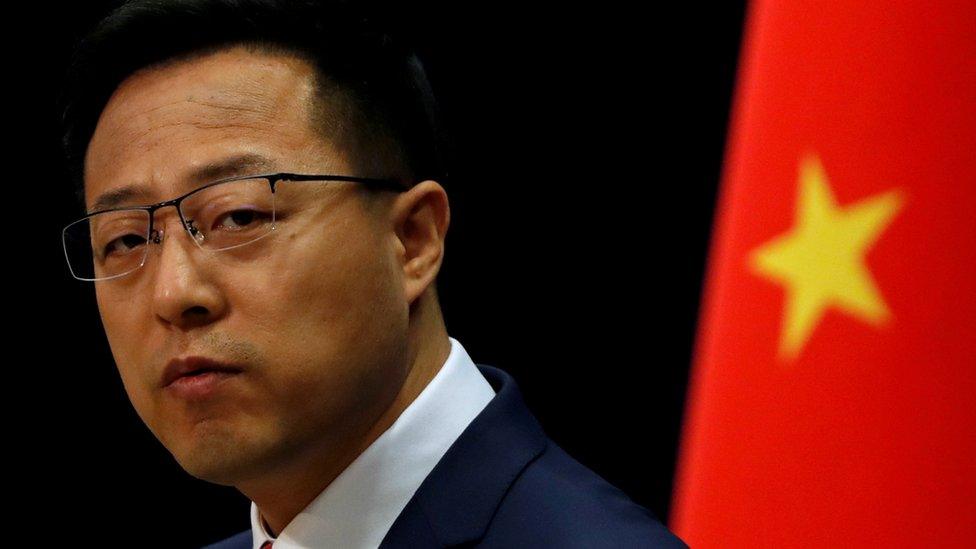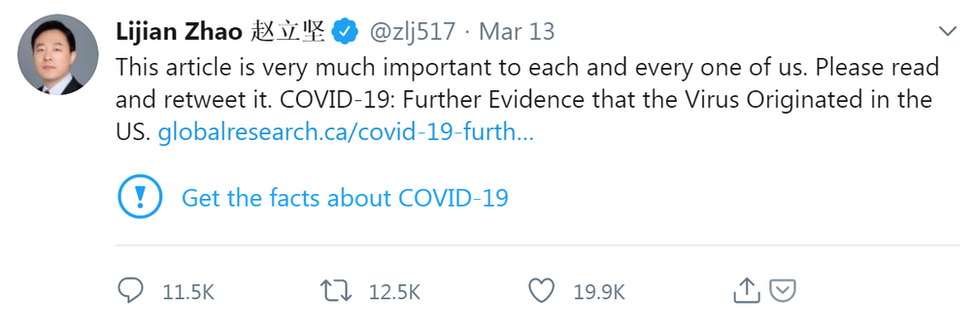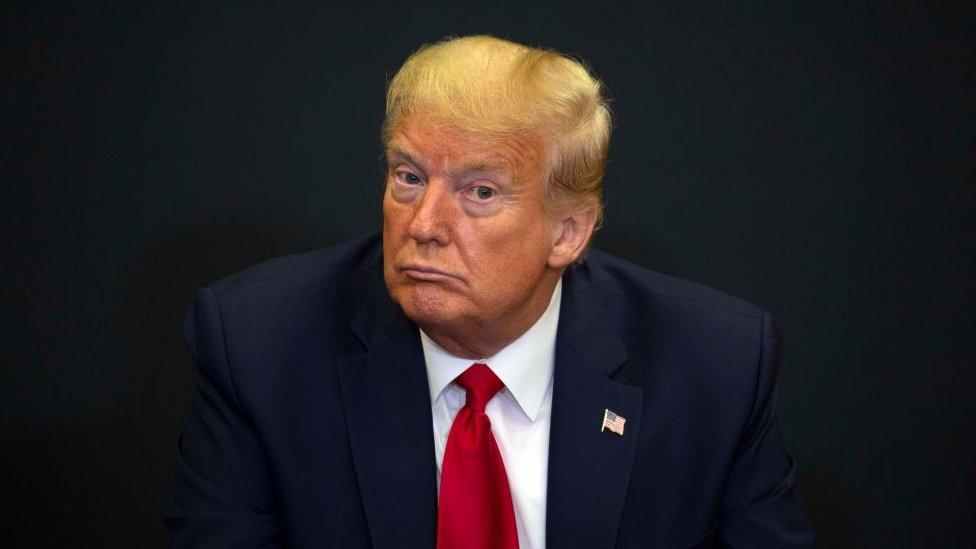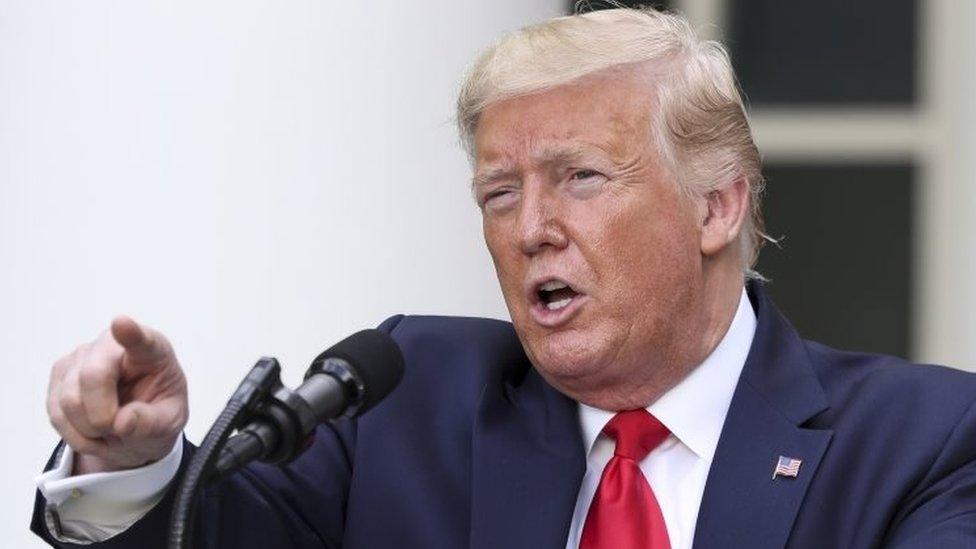Twitter fact-checks China amid bias row
- Published

Mr Zhao is one of China's most prominent spokesmen
Twitter, under intense scrutiny for its use of fact-checking warnings, has added them to tweets from China's foreign ministry spokesperson.
The warning has been added to tweets from spokesman Lijian Zhao, in which he warned: "It might be US army who brought the epidemic to Wuhan."
Twitter added the warning more than two months after the tweets were posted.
It comes amid a row with the White House, after similar warnings were added to tweets from President Trump.
Mr Trump is now poised to sign an executive order targeting social-media firms, the White House said, in a significant escalation of the dispute.
Earlier this week, after Twitter added its fact-checking links to President Trump's tweets, he threatened to "shut down" social networks for alleged anti-conservative bias.
The warnings on Lijian Zhao's tweets were added after the US developments.
One tweet, from 12 March, criticised the US Centers for Disease Control for a lack of clarity before alleging that it "might be" that the US army was somehow involved in the Wuhan outbreak.
In another tweet the following day, he linked to an article claiming to have evidence that the virus originated in the United States, encouraging people to read and retweet it - which thousands did.

Both tweets now contains a bright blue exclamation mark urging readers to "Get the facts about Covid-19".
Clicking it directs the user to a page of tweets about the World Health Organization's research, external that suggests the virus originated in animals, and downplays theories about deliberate human involvement in its spread.
The New York Post, which broke the story, said Twitter had added the warning, external only after its reporters put pressure on the company over alleged "double standards" between the Chinese official and Mr Trump.
A Twitter spokesperson would not confirm whether that was the case, saying only that Mr Zhao's tweets "contain potentially misleading content about Covid-19" and were labelled to "provide additional context".
'Ultimately accountable'
Twitter founder Jack Dorsey meanwhile, appealed to users to "please leave our employees out of this" as the row with the White House erupted.
Yoel Roth, Twitter's head of site integrity, has been blamed by many Conservatives as the man behind the effort to fact-check the president. Many prominent Republican voices on Twitter pointed to old tweets by Mr Roth which refer to "Nazis in the White House" and other insults about the president, external and his allies.
Kellyanne Conway, a senior White House aide with the job title of counsellor to the president, appeared to encourage supporters to contact Mr Roth online, saying on Fox News that someone should "go wake him up and tell him he's about to get more followers".
Twitter, however, insists that no one person is responsible for its fact-checking decisions.
Allow X content?
This article contains content provided by X. We ask for your permission before anything is loaded, as they may be using cookies and other technologies. You may want to read X’s cookie policy, external and privacy policy, external before accepting. To view this content choose ‘accept and continue’.
"There is someone ultimately accountable for our actions as a company, and that's me," Mr Dorsey tweeted, promising to continue to "point out incorrect or disputed information".
"Our intention is to connect the dots of conflicting statements and show the information in dispute so people can judge for themselves. More transparency from us is critical so folks can clearly see the why behind our actions," he said.
The approach differs from that of Facebook.
Sir Nick Clegg, a prominent former UK politician turned Facebook's vice-president of communications, said the company doesn't believe "a private tech company like ours should be in the business of vetting what politicians say about each other", the Telegraph reports, external.
"We think people should be allowed to hear what politicians say so they can make up their own mind and hold the politician to account," he said.
- Published28 May 2020

- Published27 May 2020
